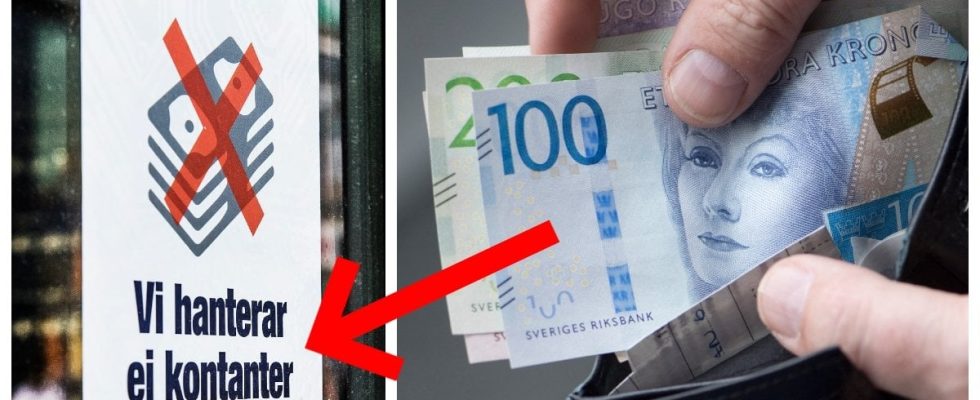The Authority for Community Protection and Preparedness (MSB) as well as the governor of the Riksbank Erik Thedéen has recently reiterated the importance of having cash in smaller denominations at home in the event of a crisis or war.
At the same time, fewer and fewer people are using cash overall. According to recent statistics from Bankomat AB, which provides 1,300 ATMs around Sweden, each Swede withdrew an average of SEK 425 a month from these machines in the second half of 2023, which is a decrease of 19 percent compared to the corresponding period in 2022.
MSB: This is how much cash you should have at home
When can we have a cashless society in Sweden?
So when can we actually be cashless in Sweden? News24 asked Niklas Arvidssonprofessor of industrial economics and organization at the Royal Institute of Technology in Stockholm.
– It depends somewhat on how you define cashless. If you define it as cashless in practice, I would say that we are today. So that cash is still used, but to a small extent. Approximately one percent of the Swedish economy is linked to cash and fewer and fewer payments are made with cash.
– If, on the other hand, we are talking about a situation where we have no cash at all, where the Riksbank has stopped issuing cash, then it is at least one or two decades into the future.
Cash at home? Then you MUST do this: “Important”
“Cash has become part of a prepping mindset”
At the same time, Niklas Arvidsson raises a payment investigation that was published just over a year ago.
– It indicates that the legislation may have to be changed, so that it is mandatory to accept cash within certain businesses that provide, for example, food, medicine and fuel.
He also emphasizes that, although the number of cash payments is decreasing, the amount of cash in circulation has stabilized.
– It has been seen that cash has become part of a kind of prepping idea, where more and more people have cash at home in case the worst happens.
So many ATMs have disappeared in 10 years: “Will decrease”
Photo: Fredrik Sandberg/TT
That’s how much money Swedes have in their bank accounts
According to Arvidsson, it is consumers who control how much cash is in circulation because it is demand-driven.
– But then formally, of course, it is laws, politicians and the assignment given to the Riksbank that determines the issue of whether or not cash should be used in society.
